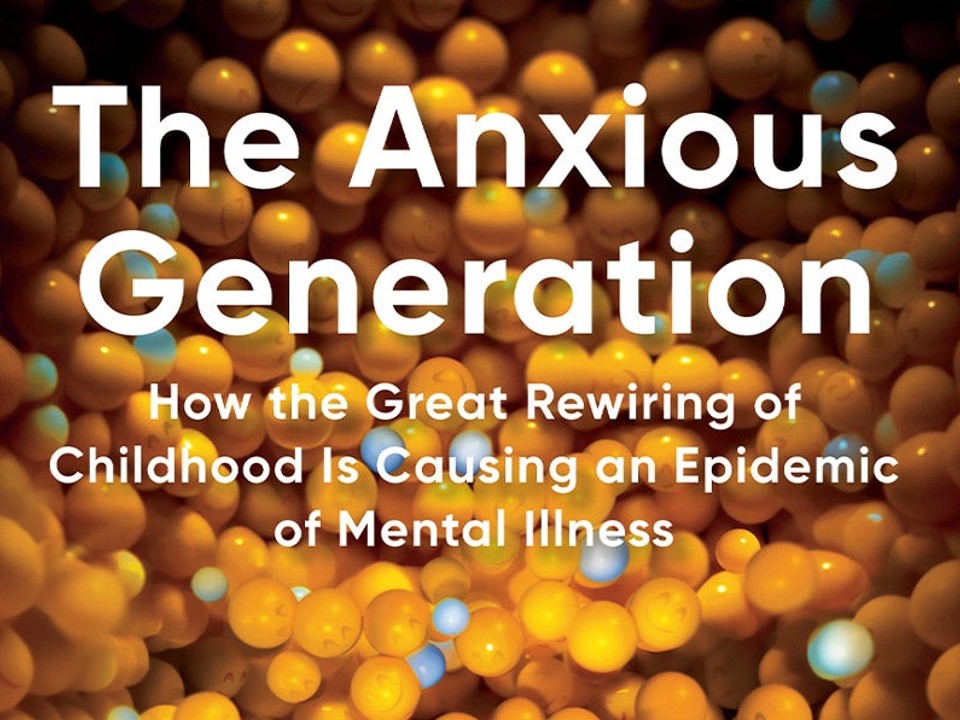Jonathan Haidt’s latest book, The Anxious Generation, confronts one of the most urgent moral and psychological crises of our time: the collapse of adolescent mental health in the wake of the smartphone and social media revolution.
At Medinge Group, we are committed to exploring the moral responsibility of brands and businesses. We believe that success must never come at the cost of human flourishing. That is why we believe this is a book that every conscientious leader, strategist and brand builder should read.
Haidt, a social psychologist known for his work on morality and culture, has become increasingly alarmed by the mounting evidence of harm in our digitally mediated society. But he is not a polemicist. He is a scientist. His concern is rooted in rigorous empirical analysis.
What makes The Anxious Generation compelling is that it offers both diagnosis and direction.
The heart of the book focuses on Generation Z, those born after 1995. Haidt applies the lens of social psychology to examine how the confluence of smartphones and social media has reshaped the inner life of adolescents. His conclusion is unambiguous: this generation is suffering. The data he presents on teenage depression, anxiety, self-harm, and suicide (especially among girls) is nothing short of staggering.
But the book goes deeper. Haidt contrasts Gen Z with previous generations who grew up playing freely in the streets, navigating real social dynamics without adult interference. He argues that we have become hyper-protective, regulating children’s physical worlds while leaving their digital worlds unregulated. The result is a generation that has suffered four interconnected harms: social privation, sleep deprivation, attention fragmentation, and addiction.
As he moves into the philosophical terrain, Haidt revisits a framework he first introduced in The Happiness Hypothesis. He identifies three dimensions of human social experience: intimacy (our personal bonds), hierarchy (our sense of role and status), and divinity (our experience of the sacred or transcendent). In a striking and provocative claim, Haidt argues that the smartphone has colonised the space once occupied by the divine. That which used to offer spiritual meaning has been replaced by a device that promises connection but delivers anxiety, comparison, and constant distraction.
This insight is particularly relevant to conscious businesses. The Anxious Generation is not only a wake-up call for parents and educators, but a moral reckoning for the tech industry. Platforms designed to deliver dopamine-driven feedback loops, combined with smartphones as always-on delivery systems, create what Haidt calls “anti-social media.” These are technologies optimised for engagement, not for wellbeing.
The final chapters of the book are dedicated to action. Haidt doesn’t just leave the reader in despair. He explores what communities, schools, families, and governments can do or are already doing to reclaim adolescence and restore a healthier developmental path.
For businesses, the lesson is clear: no product is neutral. No business model is without consequences. And when your product interacts daily with millions of minds, especially young ones, you have a duty far beyond compliance or public relations. You have a duty to think, to anticipate, and to act with integrity.
The Anxious Generation is a brave, urgent, and necessary book.
It reminds us that every act of design, every technological leap, and every go-to-market strategy is also a moral choice. In a world that desperately needs healing, businesses must choose their impact consciously.
Jonathan Haidt (2024). The Anxious Generation: How the Great Rewiring of Childhood Is Causing an Epidemic of Mental Illness. London: Penguin Press. 400 pages. ISBN 9780241647528.


Leave a Reply